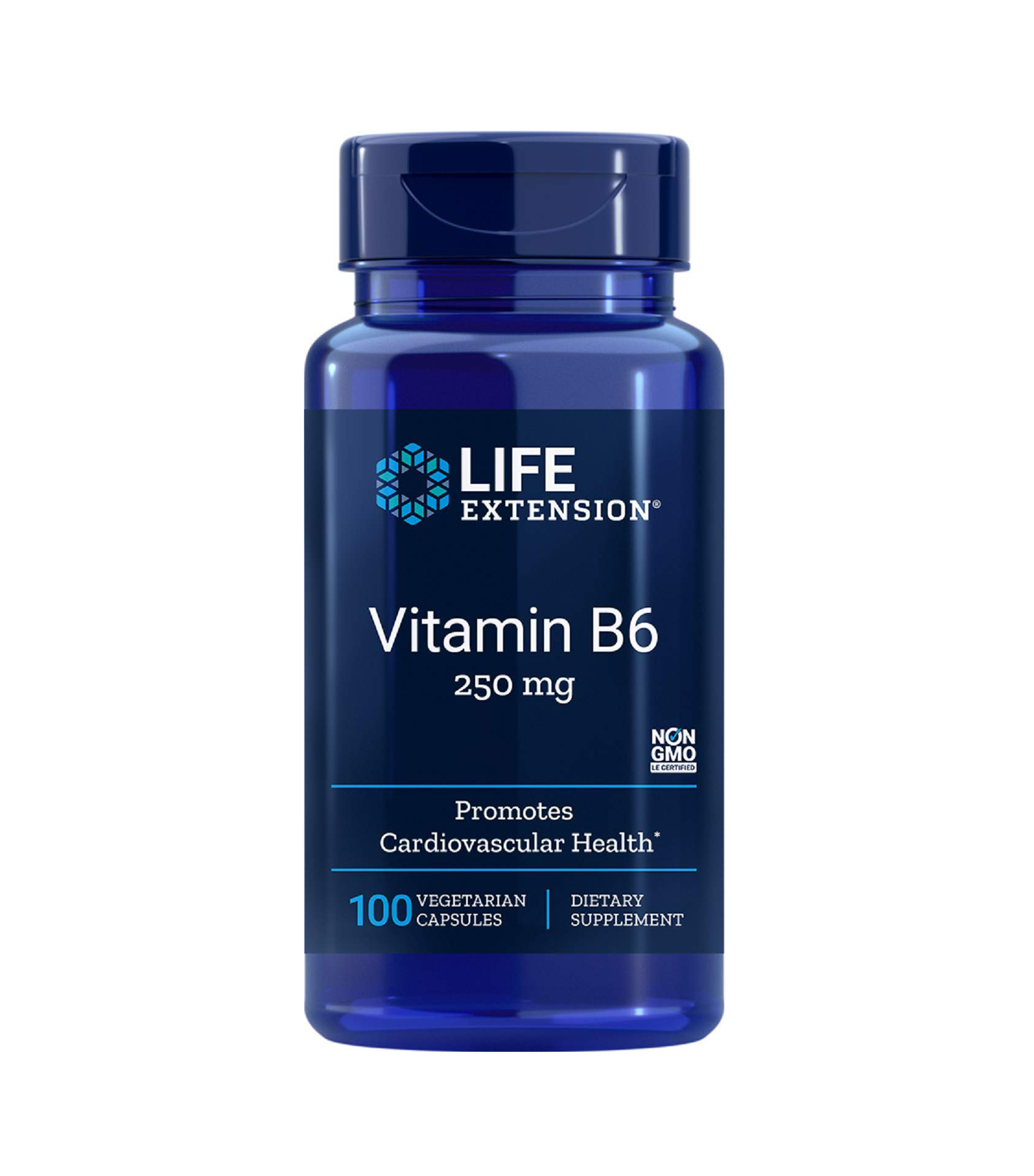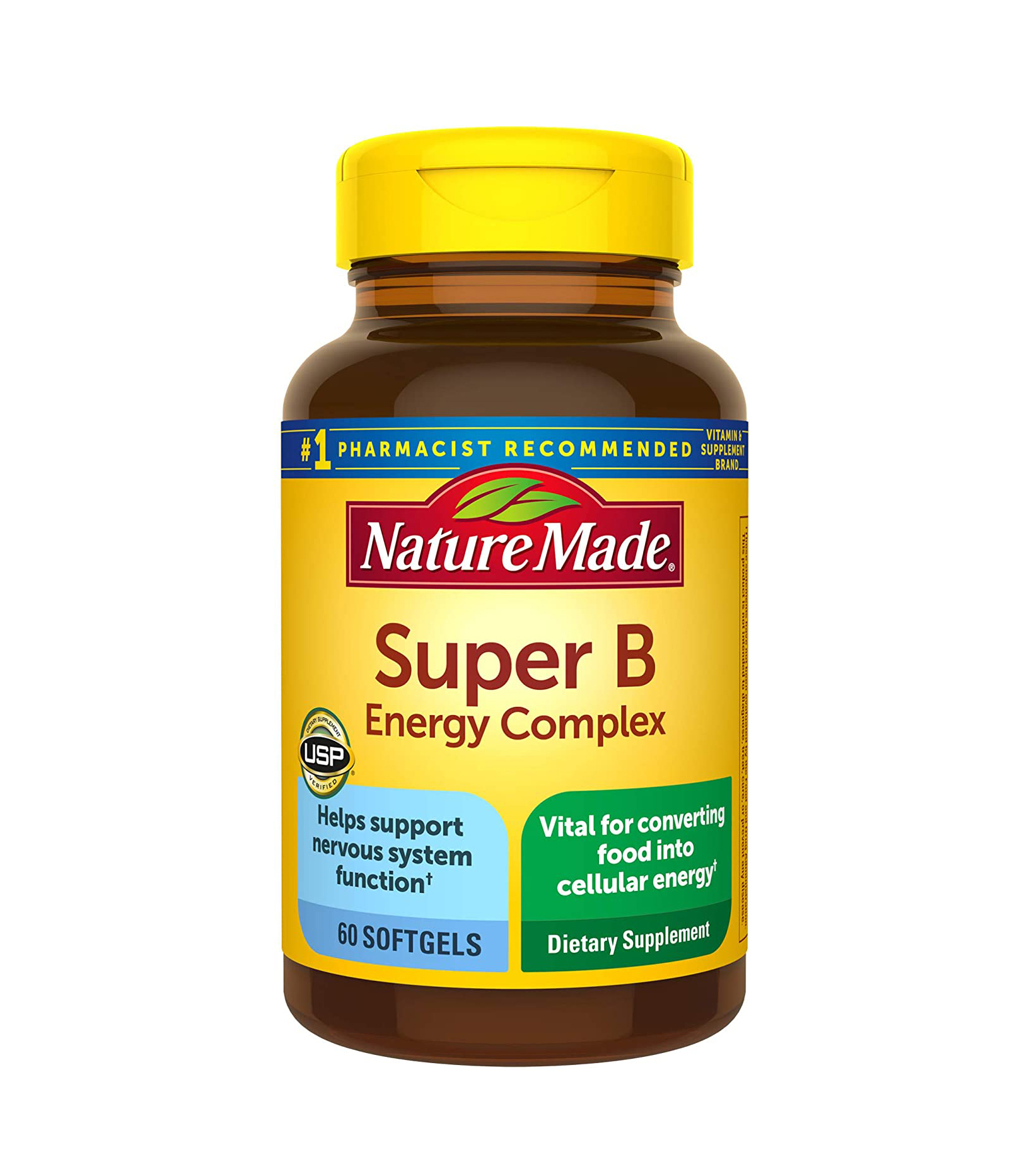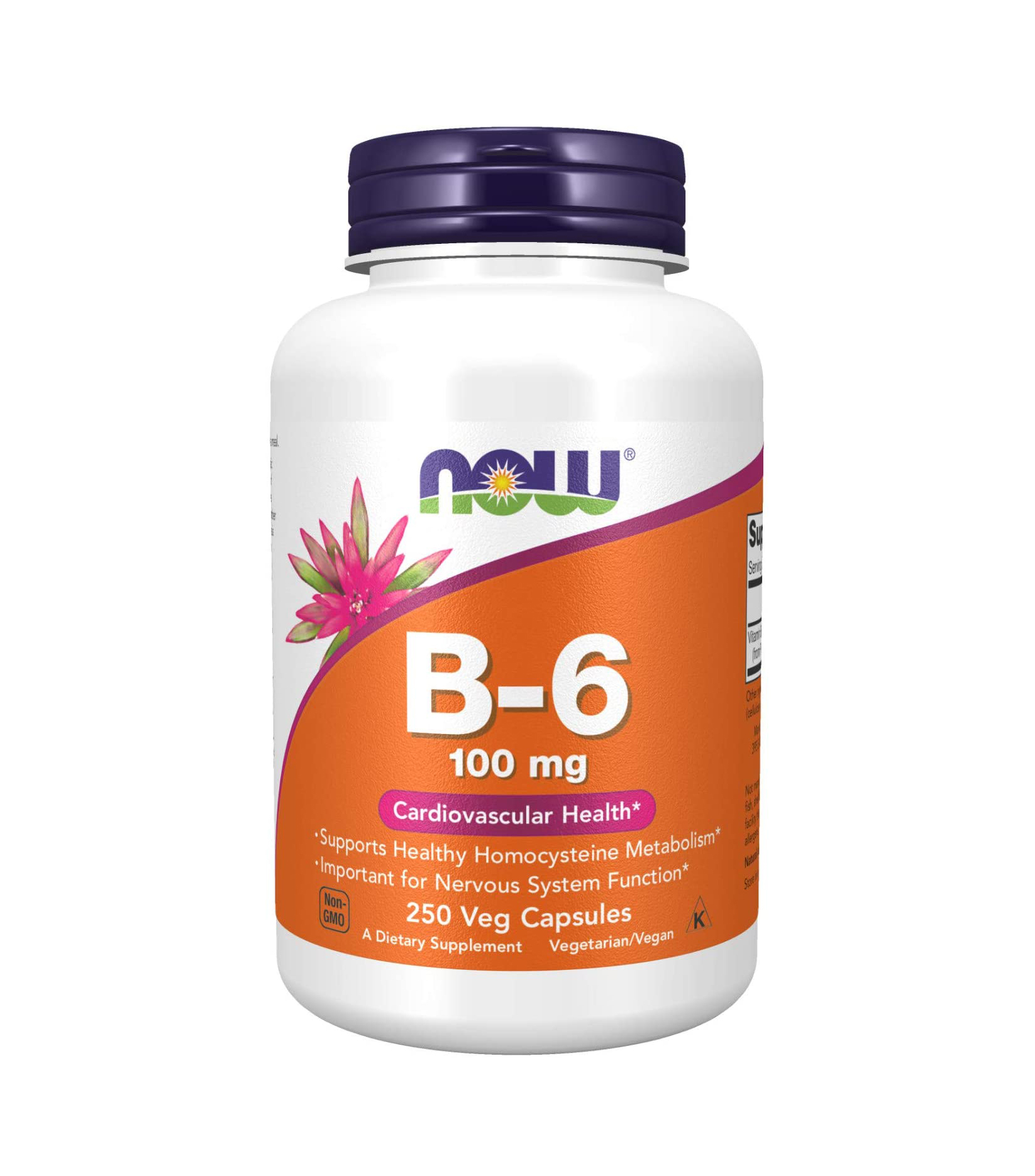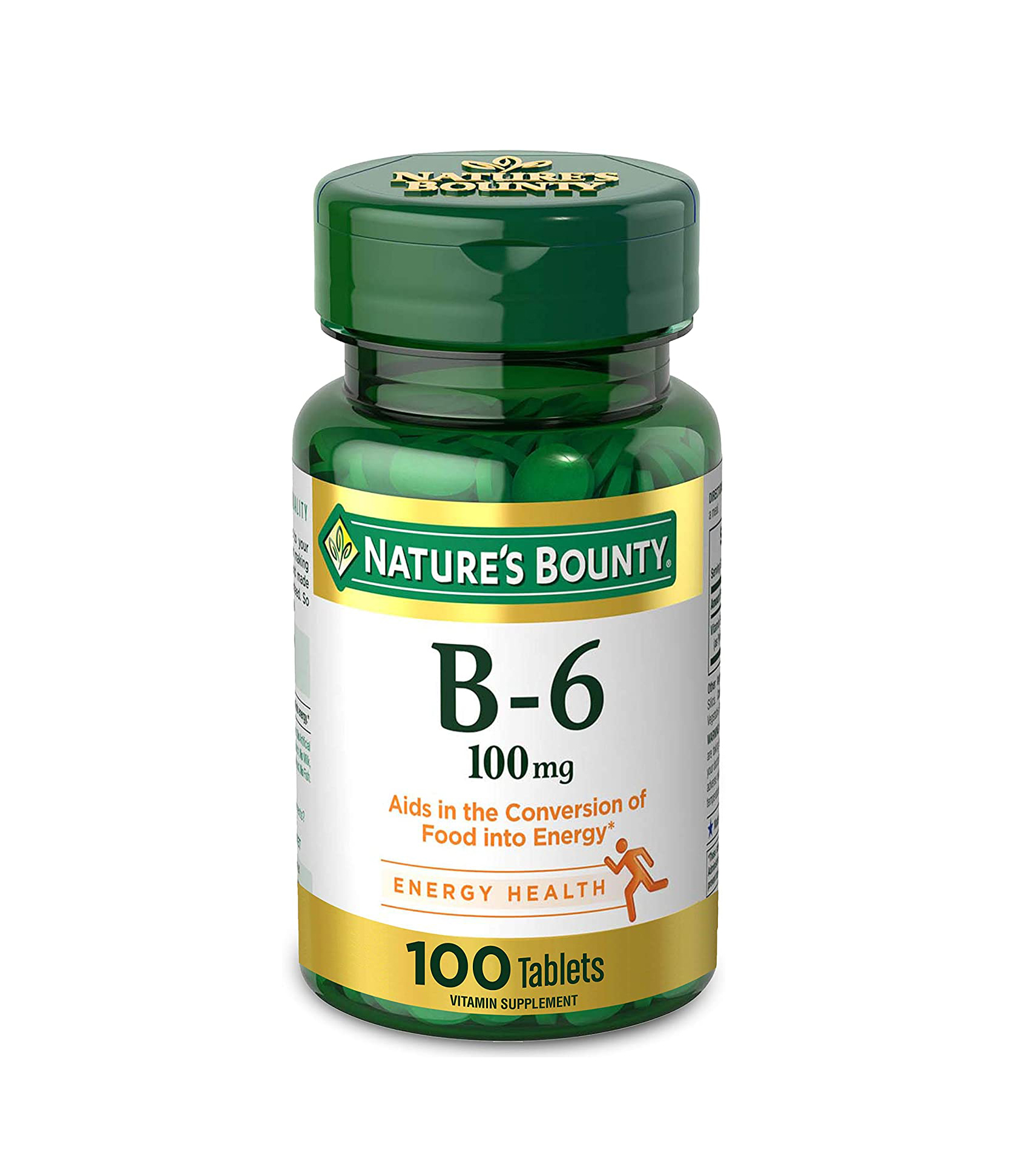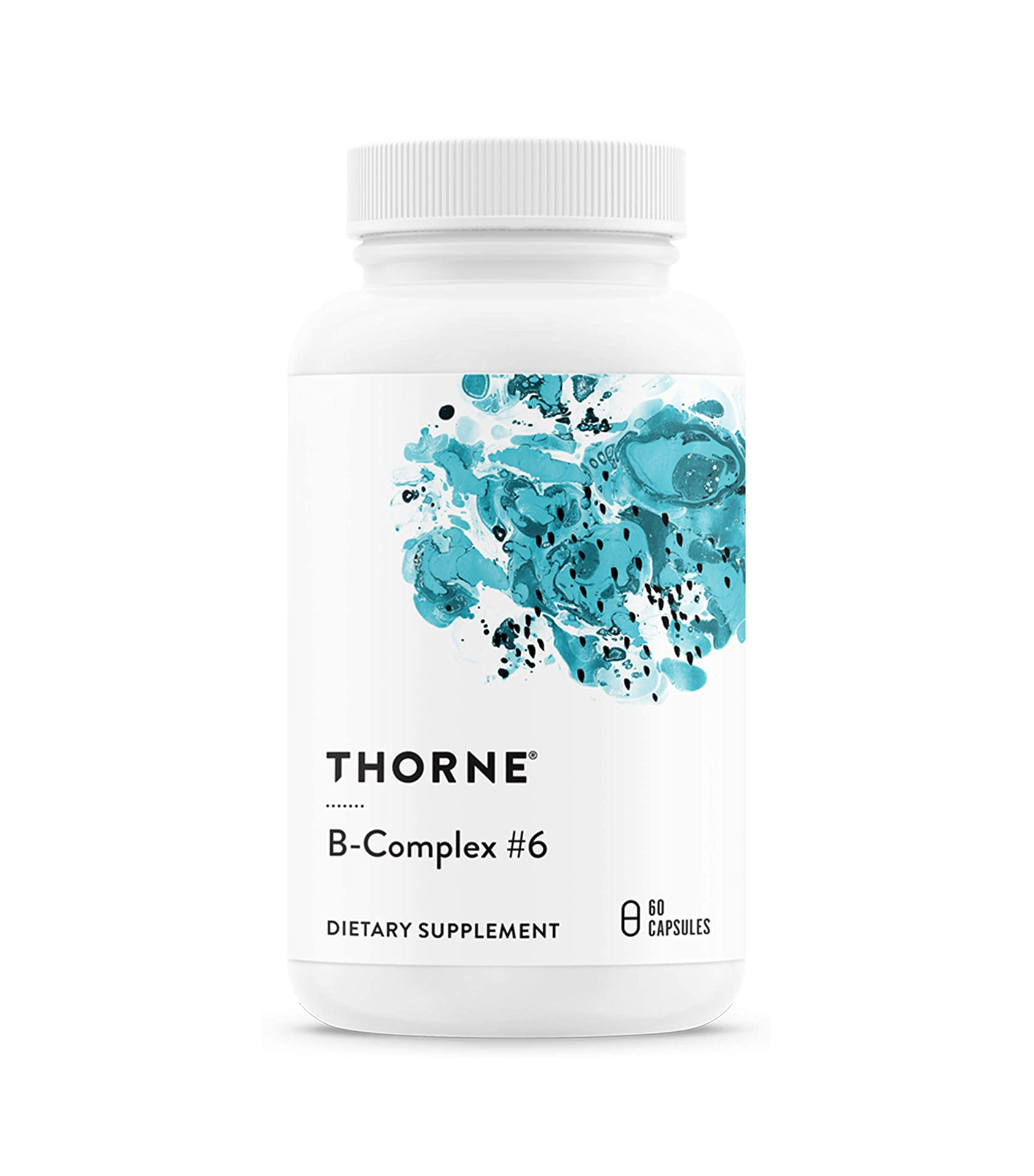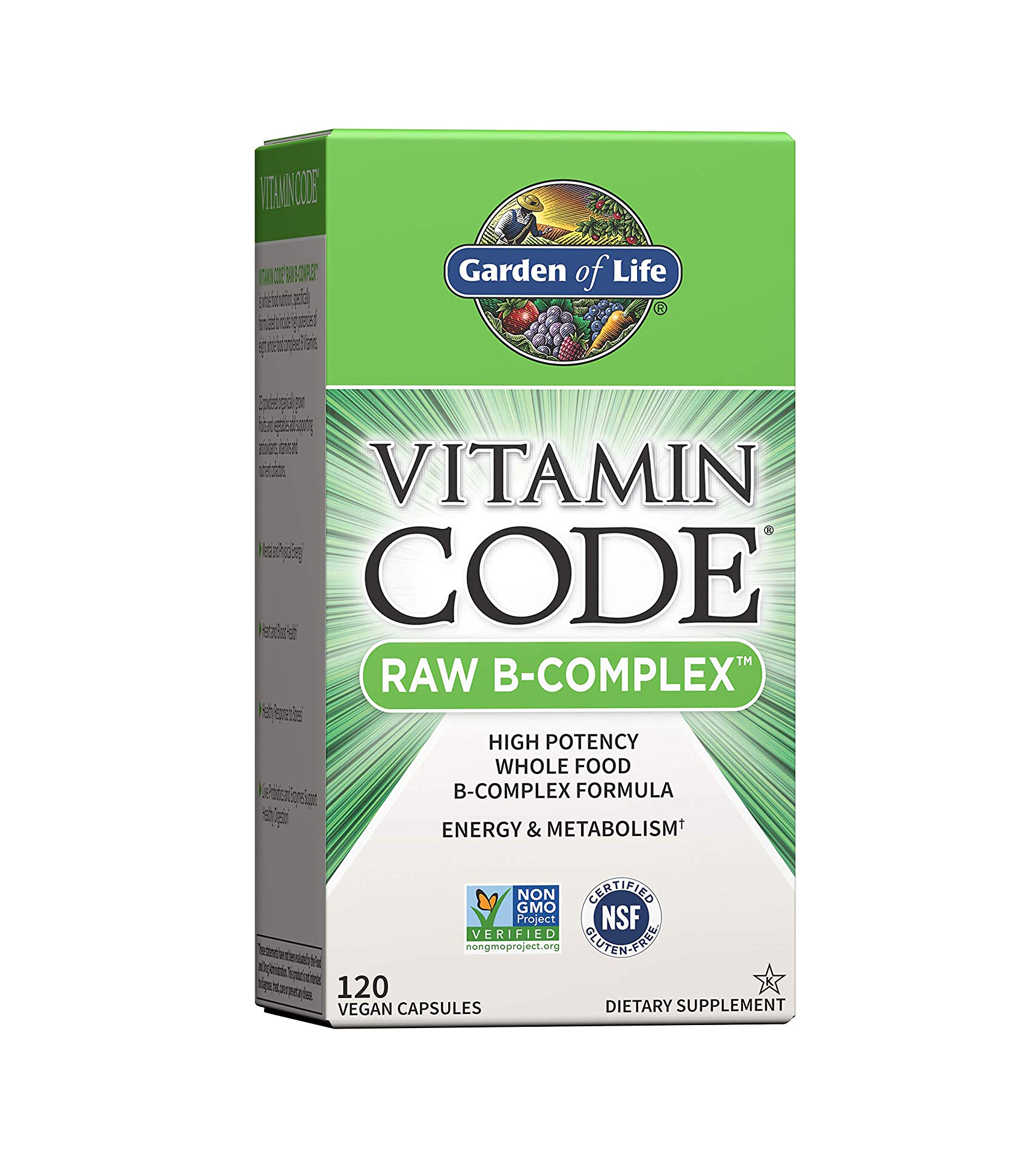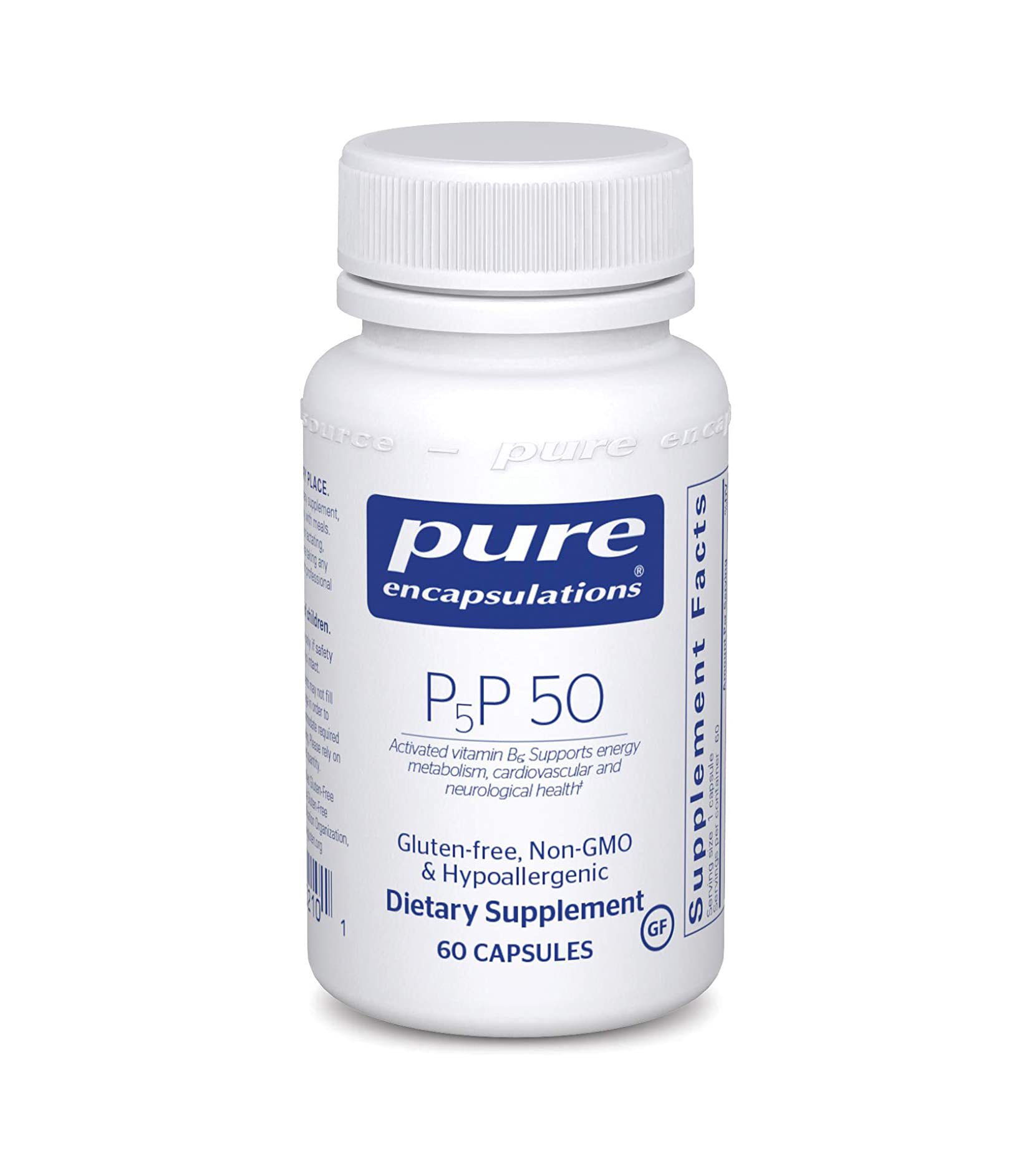This Essential Vitamin Can Help With Annoying PMS Symptoms
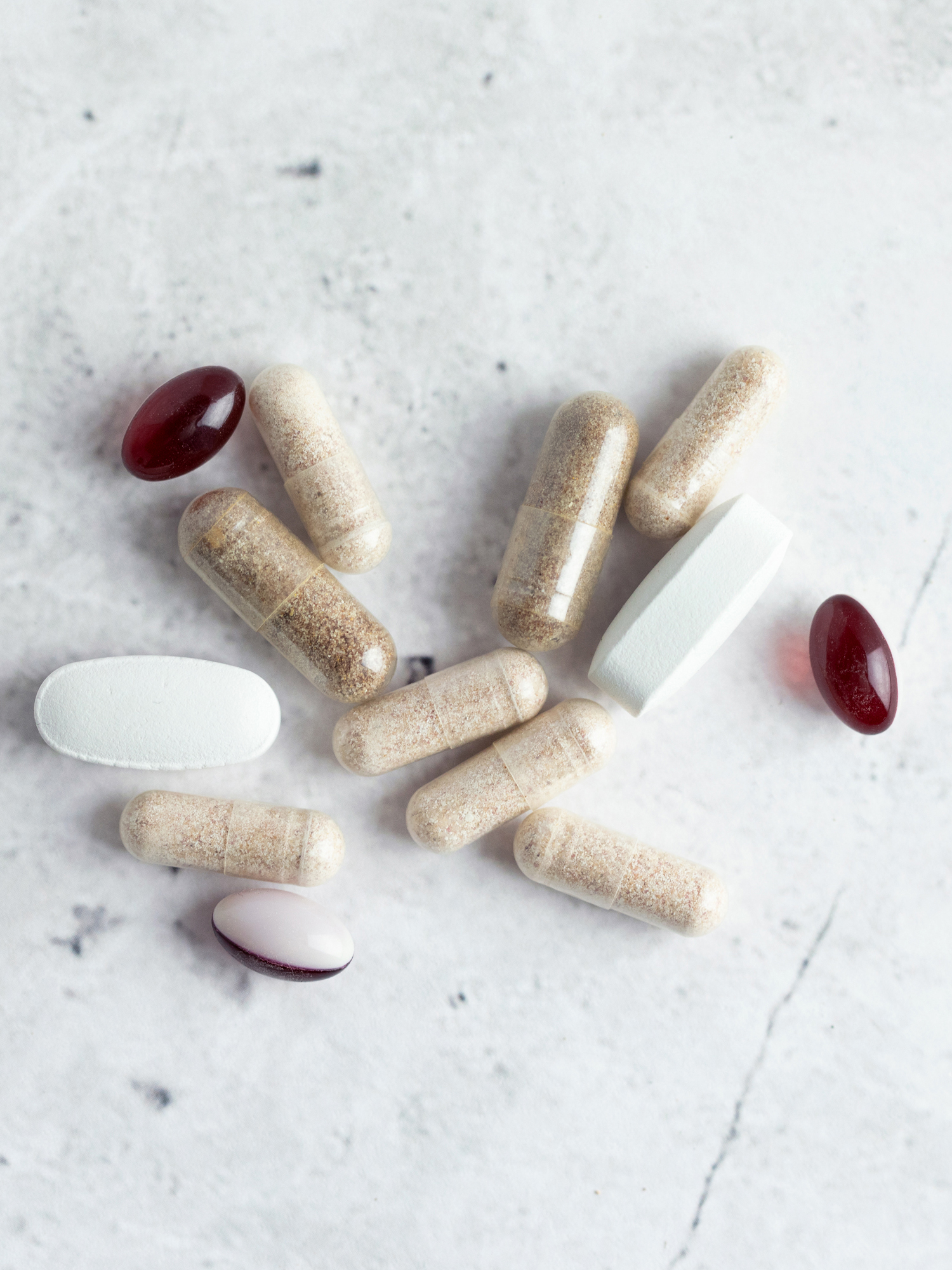
We know we need to get certain vitamins, minerals, and nutrients through our diet. They're crucial to making sure our bodies are functioning correctly and our immune systems are in good shape. But honestly, they can sometimes be confusing or seem unclear. Vitamin D, vitamin B12, omega-3s, vitamin C, probiotics, zinc, magnesium… I know I need all of these things, but how can I make sure I'm getting enough each day, and how exactly do they help my body?
I've been thinking about this a lot, especially in recent months while we've been dealing with a pandemic and while everyone's been talking about boosting their immune systems. So to investigate further, I wanted to learn more about B vitamins, which are important to have in a healthy diet. We've already covered B12, so I decided to dive deep into vitamin B6. Here's what I found out.
What Is Vitamin B6?

"Vitamin B6, or pyridoxine, is a water-soluble vitamin that your body needs for several functions," explains Valerie Agyeman, RD, a women's health dietitian and founder of Flourish Heights. "Your body cannot produce vitamin B6, so you must obtain it from foods or supplements. Most people get enough vitamin B6 through their diet, but certain populations may be at risk for deficiency. Consuming adequate amounts of vitamin B6 is important for optimal health and may even prevent and manage chronic diseases."
Vitamin B6 plays a role in helping our bodies turn the food we eat into energy, adds registered dietitian Sarah Rueven, MS, RDN, CDN, founder of Rooted Wellness. It's also needed to create red blood cells and neurotransmitters.
Adults aged 19-50 need 1.3 mg of vitamin B6, while women who are pregnant need 1.9 mg, and those who are lactating need 2.0 mg. Some sources of vitamin B6 include poultry, fish (salmon and tuna), starchy vegetables, fruits (bananas), nuts, and fortified cereals. "The bioavailability of vitamin B6 is influenced by the extent and type of processing the food is subjected to," says registered dietitian nutritionist Stephanie Carter, MS, RDN, founder and owner of Carter Hall Lifestyle. "Much of the vitamin originally present in foods can be lost through prolonged heating (especially in canning) as well as with the milling and refining of grains. The vitamin is fairly stable with cooking."
Signs of a Vitamin B6 Deficiency

Vitamin B6 deficiencies are rare in the United States, but there are some groups that might be at risk. Carter says individuals with impaired renal function may have lower levels of plasma B6 concentrations. Those with autoimmune disorders (such as rheumatoid arthritis, celiac disease, and Crohn's disease) and alcohol dependence could be at risk as well. "Vitamin B6 deficiency is also associated with hypochromic, microcytic anemia due to impaired heme synthesis," says Carter. "A deficiency of vitamin B6 also impairs niacin synthesis and inhibits metabolism of homocysteine, which may result in high levels of homocysteine, a risk factor for heart disease. While supplementation with vitamin B6, folate, and vitamin B12 has been shown to lower plasma homocysteine concentrations, current evidence showing lowered risk against heart disease is conflicting."
While most people will get enough vitamin B6 from their diet, Agyeman adds that in some cases, under the supervision of a healthcare professional, some groups like women of childbearing age and the elderly might benefit from taking higher amounts of vitamin B6 from supplements.
Usually if you're vitamin B6 deficient, you also might not be getting enough of the other B complex vitamins like folate and B12. Rueven explains that signs of a deficiency include weakness, fatigue, cheilosis (scaling on lips and cracks on the corner of the mouth), glossitis (swollen tongue), a weakened immune system, neurological problems such as confusion and depression, and a rash on the face, neck, and shoulders.
Benefits of Vitamin B6
1. It's a Mood Booster

"Vitamin B6 is used to make neurotransmitters, which help to send nerve signals throughout the body and are responsible for mood regulation," Rueven explains. "B6 is involved in the formation of neurotransmitters like serotonin and dopamine, two neurotransmitters responsible for improved mood. Research with older adults shows that B6 deficiency is associated with a greater risk of depression."
2. It Can Reduce Your Risk of Heart Disease

This vitamin may help reduce heart disease risk and clogged arteries. "Current evidence indicates that vitamin B6 plays a role in mediating levels of plasma homocysteine, an amino acid associated with several disease processes, including heart disease," says Carter. "A deficiency (or low levels) of vitamin B6 results in high levels of homocysteine, which may increase cardiovascular disease (CVD) risk. As such, supplementation of vitamin B6, in combination with folate and B12, may help to decrease risk by lowering the levels of homocysteine, an amino acid."
3. It Could Help With PMS Symptoms

"Vitamin B6 has been used to help manage symptoms of premenstrual syndrome, including anxiety, depression, and irritability," Agyeman says. "Some research has indicated that high doses of vitamin B6 may be effective at decreasing anxiety and other mood issues associated with PMS due to its role in creating neurotransmitters."
4. It Could Provide Morning Sickness Relief

Rueven says the vitamin might reduce morning sickness or prenatal nausea associated with pregnancy. "The American College of Obstetricians and Gynecologists recommends that pregnant women dealing with prenatal nausea may take a B6 supplement to help reduce nausea," she explains. "Of course, it is important to speak to your doctor before starting a new supplement, especially during pregnancy!"
5. It Can Ease Rheumatoid Arthritis Symptoms
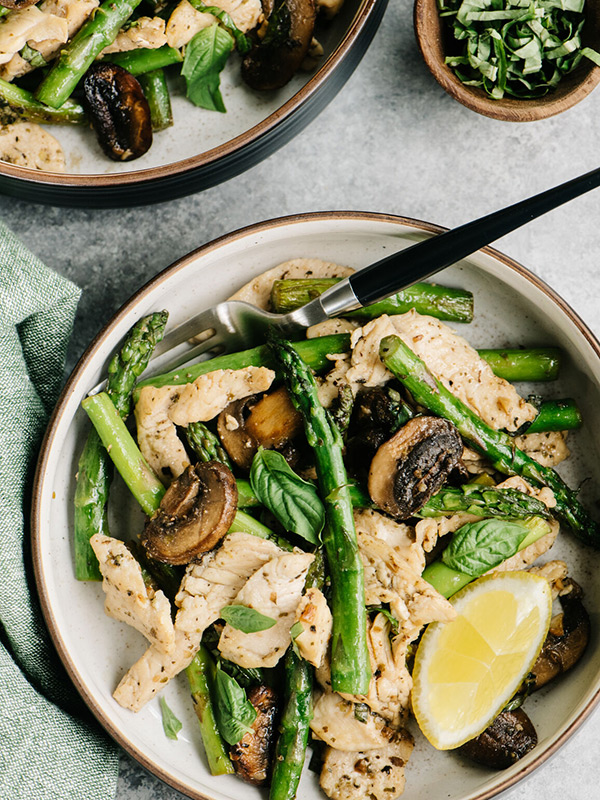
Getting enough vitamin B6 might help reduce symptoms that are associated with rheumatoid arthritis. "Increasing evidence suggests that marginal vitamin B6 deficiency may be related to an increased risk of inflammation-related diseases," says Carter. Previous studies have linked low blood levels of vitamin B6, seen in those RA, with various signs of inflammation such as C-reactive protein (CRP). Although vitamin B6 supplementation can normalize vitamin B6 concentrations in patients with rheumatoid arthritis, it has not been shown to suppress the production of inflammatory cytokines or decrease levels of inflammatory markers. More research is needed to prove these effects."
6. It Prevents Anemia

"Vitamin B6 is needed to produce hemoglobin, an important component of red blood cells. If you aren't getting enough B6 in your diet, your body will not be able to properly produce red blood cells, which will lead to anemia," says Rueven.
7. It May Reduce the Risk of Certain Cancers

"Obtaining vitamin B6 through the diet may help reduce the risk of certain types of cancers such as colorectal cancer," explains Carter. "Some evidence indicates that vitamin B6 modulates cancer risk. However, the means by which B6 mediates this effect is unknown. More research is needed to investigate vitamin B6 supplementation in the prevention of cancer or reduce its impact on mortality."
8. It Could Reduce the Risk of Macular Degeneration
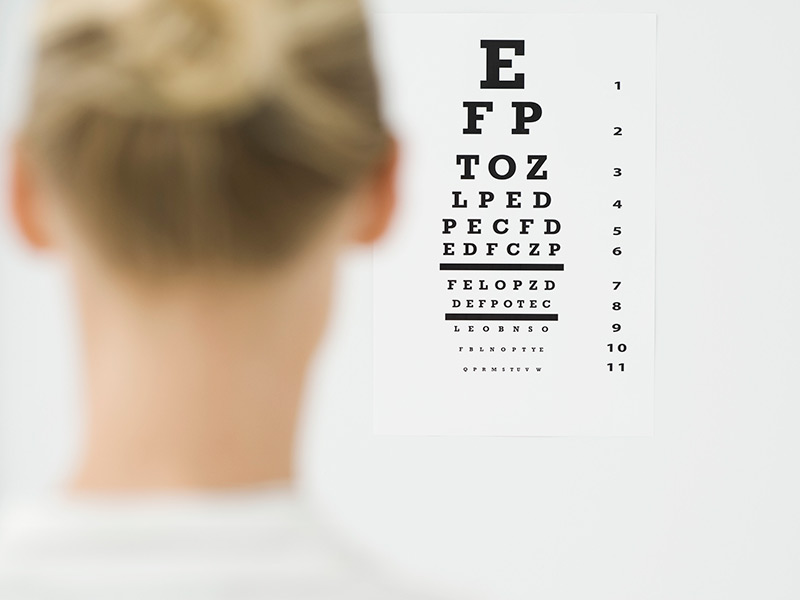
Agyeman says vitamin B6 supplements may reduce the risk of age-related macular degeneration (AMD) since there is evidence that adequate blood levels of B6 may prevent issues that affect the retina, but more research is needed.
What to Know About Taking a Vitamin B6 Supplement
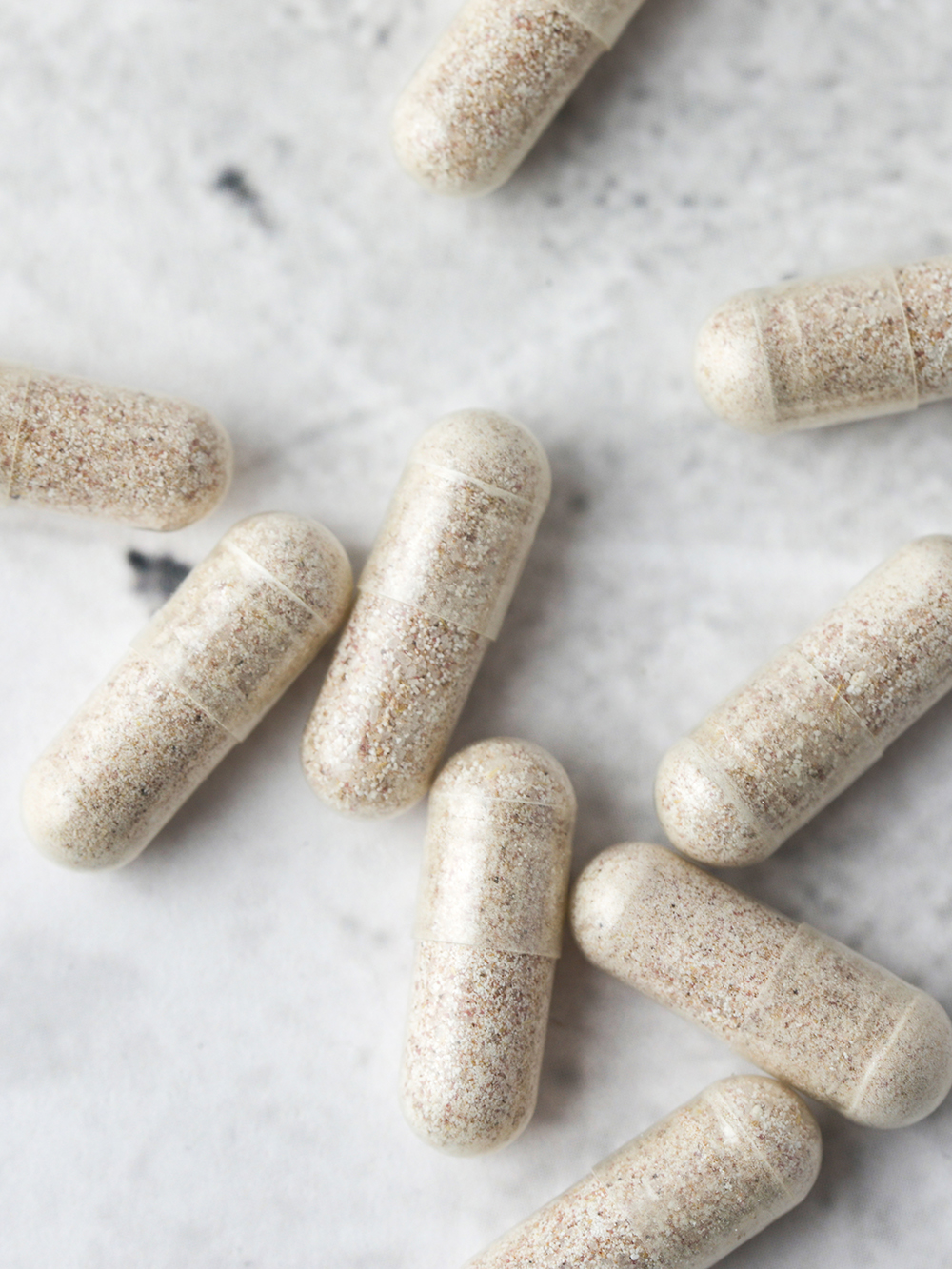
If you're thinking about taking a vitamin B6 supplement, check with your healthcare provider first. They can confirm your nutrient needs through blood work. Carter says she always recommends a food-first approach when it comes to addressing nutrient deficiency, but if supplementation is needed, she says it's important to choose a high-quality supplement that is third-party tested. Look at the labels closely and look into third-party testing companies like ConsumerLab.com, NSF International, and the U.S. Pharmacopeia.
"Vitamin B6 is found in supplements containing the other B-complex vitamins like vitamin B12 and folate, and it's also found alone in supplements," Rueven adds. "Since a vitamin B6 deficiency is often associated with a B12 or folate deficiency, it could be beneficial to take a B-complex supplement."
Disclaimer
This article is provided for informational purposes only and is not intended to be used in the place of advice of your physician or other medical professionals. You should always consult with your doctor or healthcare provider first with any health-related questions.
Sarah is lifestyle writer and editor with over 10 years of experience covering health and wellness, interior design, food, beauty, and tech. Born and raised in Los Angeles, she attended New York University and lived in New York for 12 years before returning to L.A. in 2019. In addition to her work at Who What Wear, she held editor roles at Apartment Therapy, Real Simple, House Beautiful, Elle Decor, and The Bump (sister site of The Knot). She has a passion for health and wellness, but she especially loves writing about mental health. Her self-care routine consists of five things: a good workout, “me” time on the regular, an intriguing book/podcast/playlist to unwind after a long day, naps, and decorating her home.
-
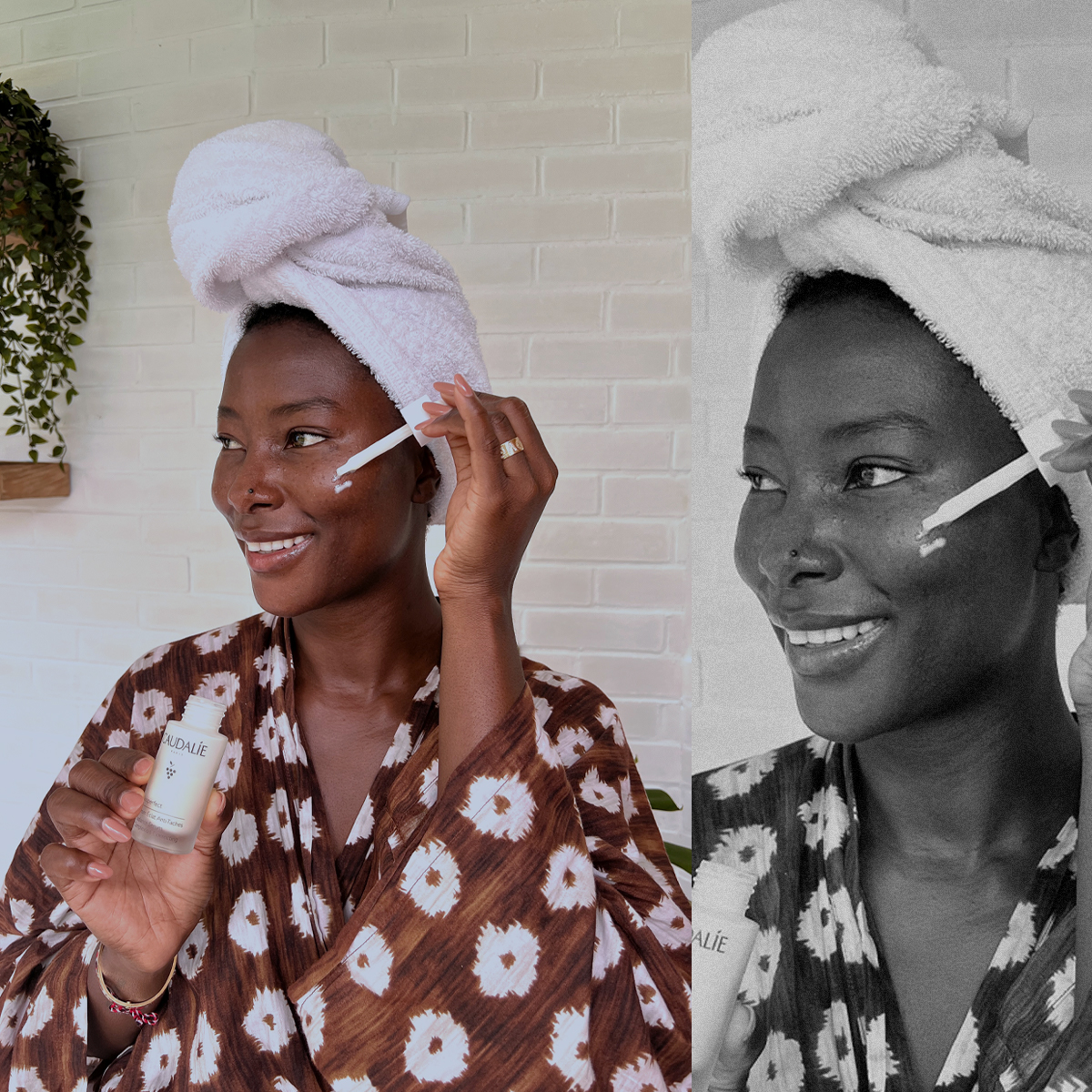 This Beauty Blogger's Wind-Down Routine Is Anything But a Snooze
This Beauty Blogger's Wind-Down Routine Is Anything But a SnoozeSee her go-to workout and her favorite vitamins.
By Virginia Yapp
-
 13 Products That Will Step Up Your Self-Care Game From Home
13 Products That Will Step Up Your Self-Care Game From HomeGet that glow from within.
By Natalie Gray Herder
-
 Bella Hadid and Gwyneth Paltrow Apparently Love Sakara Life, so We Tried It for 30 Days
Bella Hadid and Gwyneth Paltrow Apparently Love Sakara Life, so We Tried It for 30 DaysHere are our honest thoughts.
By Erin Jahns
-
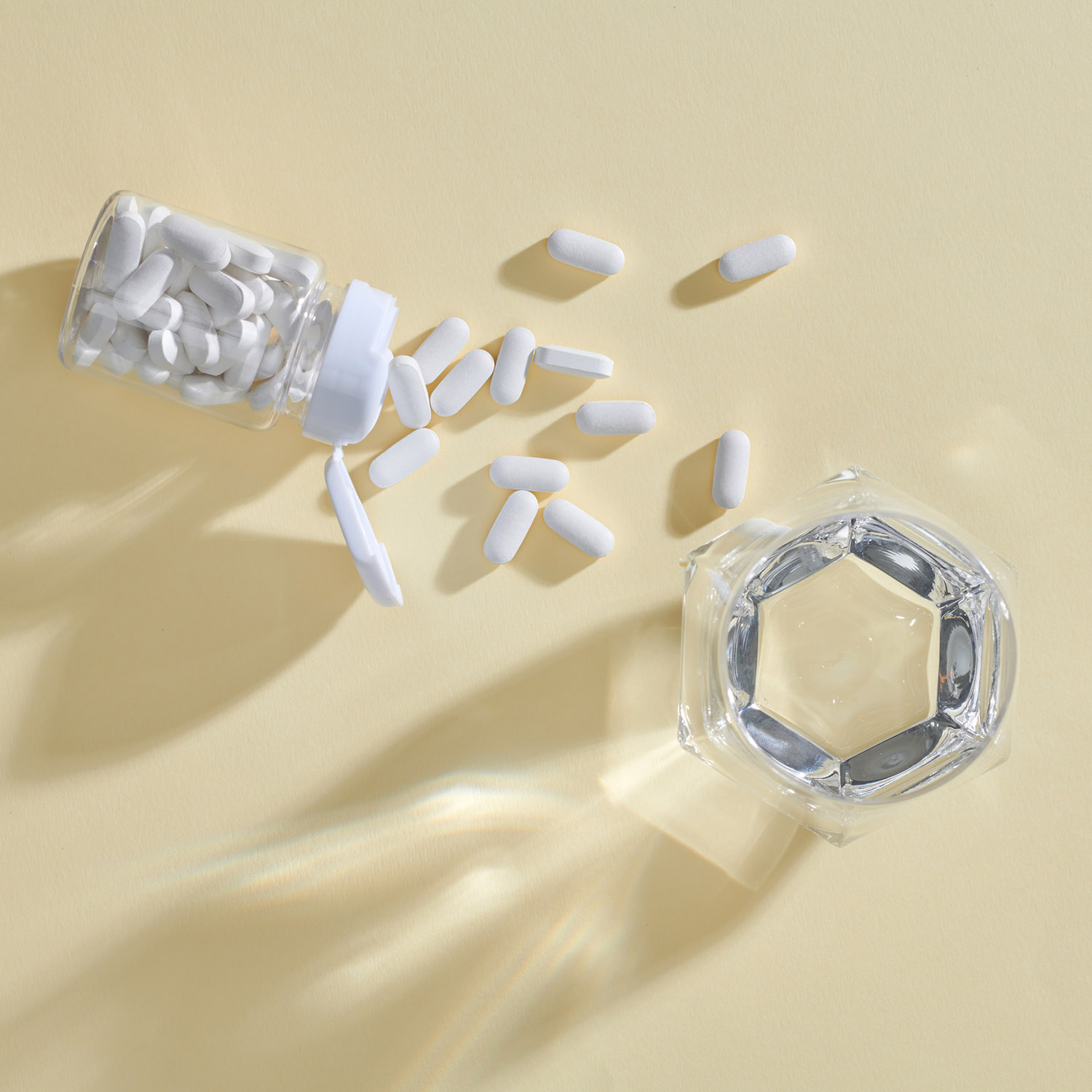 Don't Forget This Vital Ingredient When It Comes to Gut Health
Don't Forget This Vital Ingredient When It Comes to Gut HealthIt's crucial.
By Sarah Yang
-
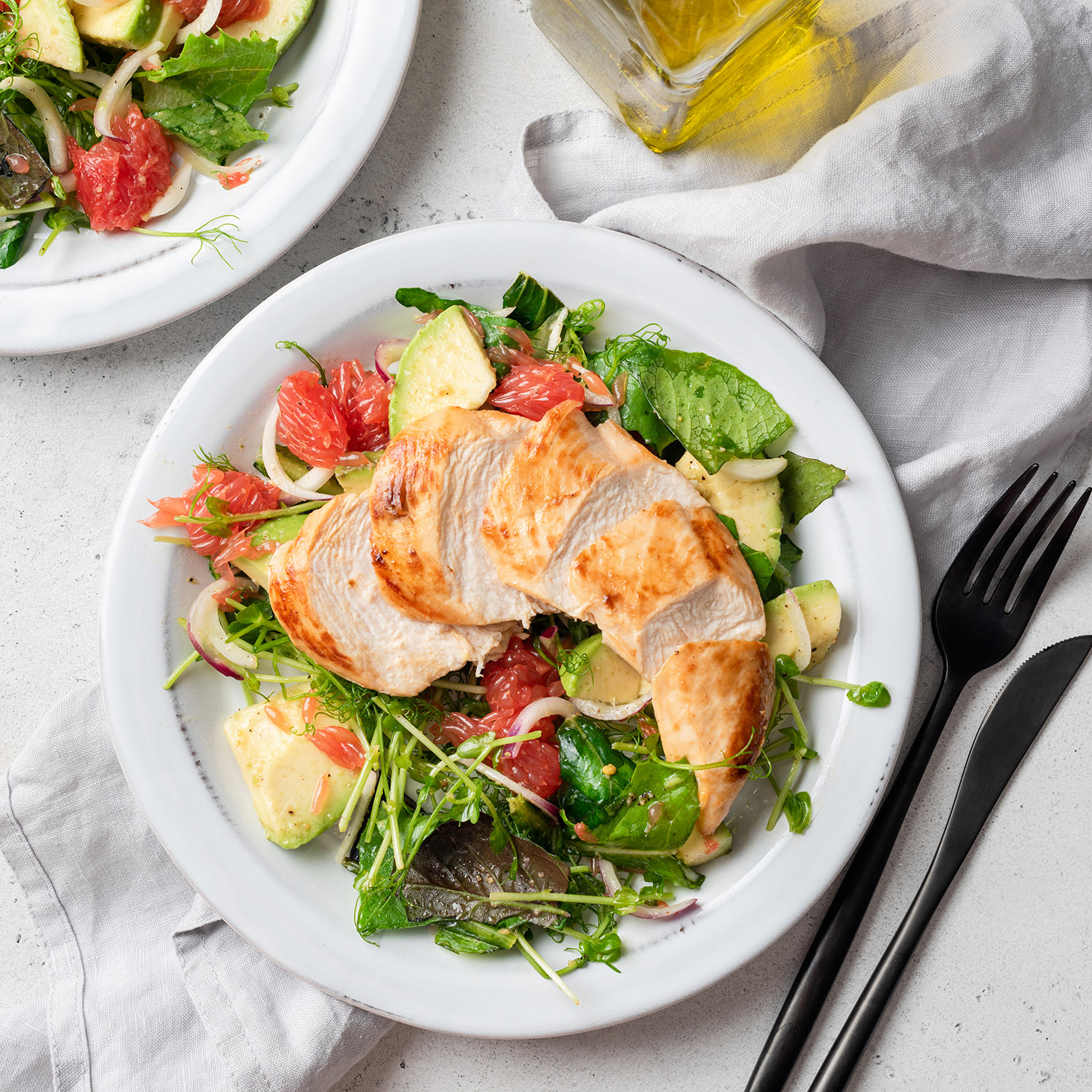 The 6 Warning Signs You're Not Getting Enough Protein
The 6 Warning Signs You're Not Getting Enough ProteinAnd what to eat to up your intake.
By Sarah Yang
-
 Everything This Professional Ballet Dancer Eats to Fuel Her for Performances
Everything This Professional Ballet Dancer Eats to Fuel Her for PerformancesHer grocery staples include high-quality French butter.
By Candice Aman
-
 These 8 Foods Are the Worst for Rosacea—Here's What to Eat Instead
These 8 Foods Are the Worst for Rosacea—Here's What to Eat InsteadControl those flare-ups.
By Sarah Yang
-
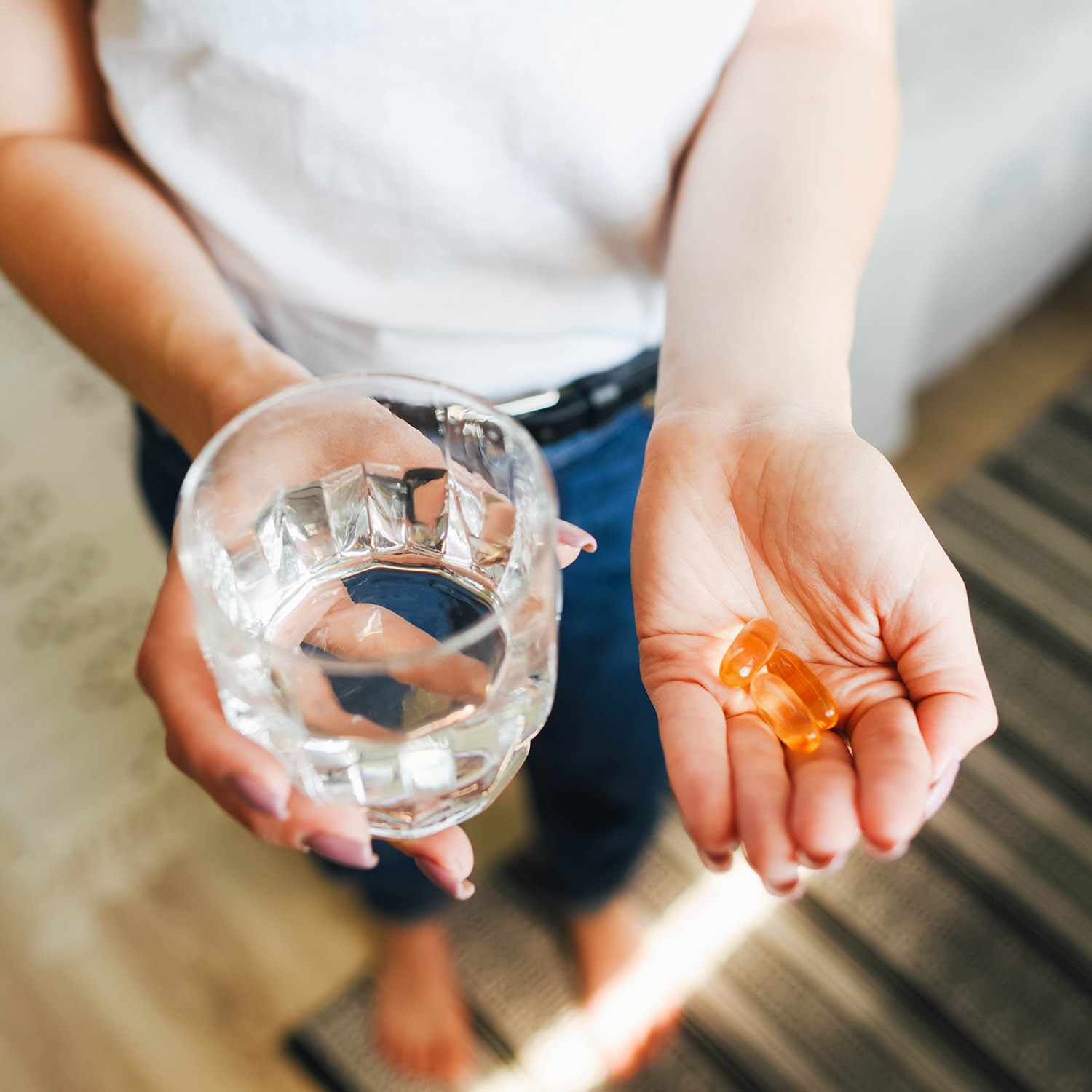 FYI: This Vitamin Affects Your Skin, Immune System, and Eye Health
FYI: This Vitamin Affects Your Skin, Immune System, and Eye HealthIt's a big deal.
By Sarah Yang
